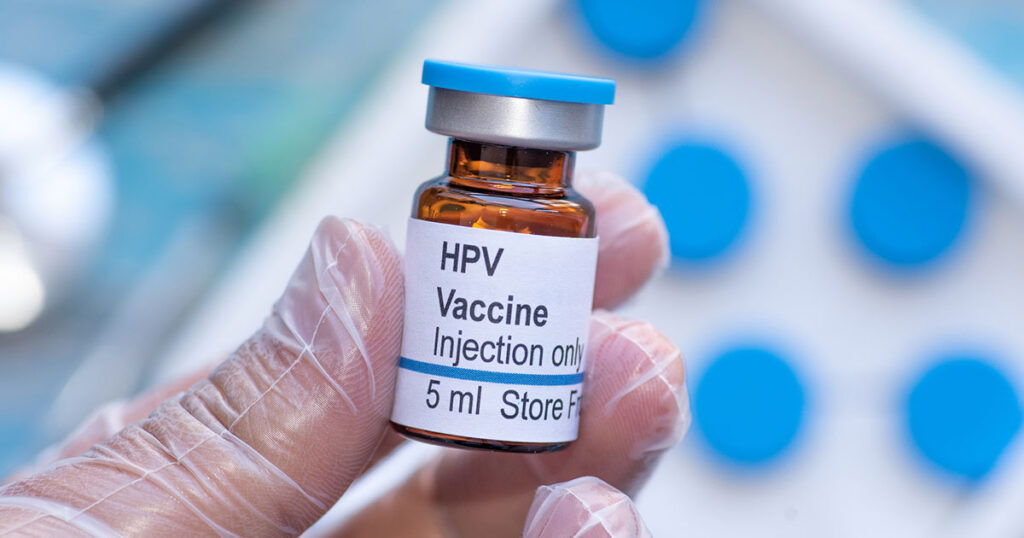HPV Vaccination and Cervical Cancer: What You Need to Know
Cervical cancer is a serious disease that affects many women around the world. One of the best ways to prevent it is through HPV vaccination. Let’s learn what HPV vaccination is, how it works and how it helps protect against cervical cancer.
What is HPV Vaccination?
HPV stands for human papillomavirus. It is a group of viruses that can cause cervical cancer and other cancers. The HPV vaccine helps to protect against these viruses. It is a safe and effective way to reduce the risk of cervical cancer.
How Does HPV Vaccination Work?
The HPV vaccine protects against genital warts and most cervical cancers. It also protects against cancers of the vagina, vulva, penis and anus caused by HPV. Additionally, it guards against mouth, throat, head and neck cancers linked to HPV.
The vaccine helps the body recognize and fight certain HPV strains safely. This makes it easier for the body to get rid of the virus if someone gets infected later.
Who Should Get the HPV Vaccine?
Both males and females should get the HPV vaccine. The HPV vaccine is recommended for:
- Females: To protect against cervical cancer and other HPV-related cancers.
- Males: To protect against genital warts and other HPV-related cancers, such as throat and anal cancer.
Benefits of HPV Vaccination
- Prevents Cancer: The vaccine helps to protect against the HPV types most likely to cause cervical cancer.
- Reduces Risk of Genital Warts: It also protects against types of HPV that cause genital warts.
- Safe and Effective: The HPV vaccine has been tested and shown to be safe and effective in preventing HPV infections.
Side effects of HPV vaccine?
The most common side effects of HPV vaccine are usually mild and go away on their own. Some common side effects include:
- Pain, redness, or swelling in the arm where the shot was given
- Mild fever
- Dizziness or fainting (fainting after any vaccine, including HPV vaccine, is more common among adolescents than others)
- Headache or feeling tired
- Nausea
- Mild pain in muscles or joint pain
What is the Age Limit for the HPV Vaccine?
The HPV vaccine is recommended for preteens and teenagers. It is most effective when given before a person becomes sexually active. The vaccine is typically recommended for:
- Two doses are recommended for girls and boys aged 9 to 15.
- Three doses are recommended for girls and boys aged 15 to 26.
- Adults aged 26 to 45 may also benefit from the vaccine, depending on their health needs and risk factors.
How Many Doses of the HPV Vaccine Are Required?
The HPV vaccine is usually given in a series of two or three shots, depending on the age of the person receiving the vaccine:
- If given before age 15, you will need two doses.
- If given at age 15 or older, three doses are required.
Which HPV Vaccine Provides 100% Protection Against Cervical Cancer?
No HPV vaccine guarantees 100% protection against cervical cancer, but it significantly reduces the risk. The vaccines available such as Gardasil 9, protect against the most common types of HPV that cause cervical cancer and other related cancers.
How Long Does the HPV Vaccine Protect You?
The HPV vaccine provides long-lasting protection, often for at least 10 years or more. Ongoing research continues to confirm how long the protection lasts but current evidence shows it remains effective for a significant period.
Can I Still Get Cervical Cancer After the HPV Vaccine?
While the HPV vaccine greatly reduces the risk of cervical cancer, it does not eliminate it entirely. Regular cervical cancer screenings (like Pap smears) are still important for monitoring your health.
Do Condoms Prevent HPV?
Condoms can reduce the risk of transmitting HPV but do not completely prevent it. HPV can be spread through skin-to-skin contact in areas not covered by a condom.
Is HPV Curable?
There is currently no cure for HPV itself. However, many people with HPV do not develop any symptoms or health problems. If HPV leads to conditions like warts or cancer, there are treatments available to manage those issues.
HPV vaccination is a powerful tool in the fight against cervical cancer. It is safe, effective and recommended for preteens and young adults. By getting vaccinated, you help protect yourself from HPV and significantly lower your risk of cervical cancer. Regular screenings and safe practices continue to be important parts of maintaining good health.

